- Home
- G. Wells Taylor
The Urn Page 11
The Urn Read online
Page 11
I had been forced to feed the urn again, and my hand ached from where I had shed blood a second time. A real solution was required to this dilemma and there could be no more delay. The master’s book had instructed me to feed the urn each day, and yet I had elected to skip the previous day’s bloodletting, concerned by how it might impact me, and my capacity to guard the urn—especially, now that the crew was openly suspicious of me.
I had been forced to stay in my cabin to avoid the British hunters, and the isolation only narrowed my hopes of solving the problem. How could I chance running afoul of those men while away from my room; and would not such an occurrence provide an opportunity for the hostile crewmen to break in and disturb the urn?
Also I had heard people outside my door: bluish light had flickered along its lower edge, the deck had creaked under someone’s weight, and I was certain I caught the low bellows of a man breathing in the night. I had to steel my nerves to gain fresh blood for the master, but I procrastinated not out of fear for myself.
I simply knew that the urn was no longer safe!
And worse, its contents had become even more active—the slithering sounds of life were continuous now that the blood had begun to grow scarce. Truly, I had only withheld the fluid in the last instance out of fear for the master; for I felt his safety could only be assured by my strength and sword.
But had the absence of blood increased his thirst and agitation, or had it somehow altered the process of his transformation?
It was at noon that the storm had caught up to us, and the crew of the Westerner had responded by throwing up more sailcloth and stuffing the engine with coal. Great black clouds of smoke would be churning from the ship’s funnel as evidenced by the air in my room that had grown murky with the fumes.
The weather had forced me to shut my porthole tight, yet I glimpsed the breakers that roared and crashed as the storm lashed the distant rocky shore.
I believed the captain’s hope had been to run ahead of the storm, skirting its edge and using its terrifying winds to escape the worst of it by passing near to the African coast.
The entire ship vibrated as it rose and fell on the raucous waves—and all the while the men made an endless racket shoveling coal. The steam engine throbbed and churned against the overpowering forces of nature; and in short time, heat from the overworked machinery had made the lower deck unbearable. My room was like an oven.
I fear Captain Bank’s gamble has left us in perilous straits. The sky over the ocean has grown impenetrable with clouds and the rain fills the wind that pushes us ever closer to land.
LATER - Activity grew more urgent in the urn as the afternoon progressed toward sundown, and several times a thumping noise came forth accompanied by a repetitive snake-like hissing.
I needed more blood, so I threw my fears aside and donned my old coat, absently checking the inner pocket for the master’s book were I had wedged it with my old fur hat. I chose the long garment for it would cover both my long knife and churi. I dared not travel the ship unarmed now, though I feared to carry my pistol would cast me from the captain’s good graces.
I drew my blankets over the urn, left the cabin and locked the door with the saint’s name upon my lips. Then, I climbed the swaying stairs to the enclosed companionway atop them where the winds pounded at the windows and doors all along its unoccupied length.
I struggled through this central hall by passenger cabins, navigating the housing that protected the main deck, lurching left and right, forward and backward as the ship was buffeted by the howling wind and heaved by raging waves.
My simple prayer had aided me for I found the dining room empty, and breathing a sigh of relief, I passed through it to the galley on the other side. Doubtless, the crew would be busy keeping the ship on course, and the other passengers were riding out the storm in the security of their own rooms.
The ship’s cook had introduced himself as Joe on one of my previous trips to the galley when I had been lucky enough to find him but lacking the courage to bridge the topic of the blood. He was of Asian descent, and so had undoubtedly experienced some prejudice at the hands of the Westerner’s crew in his time aboard.
There is a sympathy that occurs between the downtrodden that lasts well beyond the final morsel of food, and so when I lunged through the door to the galley, Joe scolded me for being out of my cabin in the storm. The canny cook had wedged a chair between the stove and the wall, and was using a length of rope tied to it as a harness to steady himself against the movement of the ship.
Joe quickly undid this and reached out to catch me as I stumbled close. When I pulled a handful of gold coins from my pocket, he gasped.
I explained that what I had to say was important but had to be kept secret. He answered me with a sidelong glance that was replaced with a relieved expression when I told him that I needed help to procure a live chicken or other animal, if such a thing was possible on the ship. I required some measure of blood from butchering any of the animals he used in cooking.
“I hope to prepare Szgany recipes that require that ingredient...” I told him, and Joe laughed, saying I had picked a foolish time to prepare my supper.
However, the gold coins had caught his eye, so he said I was lucky, and led me across the rolling deck to a small room just off the kitchen where he kept cooking supplies, and there he produced a large glass jar filled with blood.
He explained that he had slaughtered a lamb only that morning and had intended to add the crimson fluid to enrich soup stock.
I left Joe tying himself into his chair, and made my way back toward the dining room with my purchase, but paused after opening the door for my worst fear was confirmed. Beneath the swinging ceiling lamp, the seasick young hunter was sitting bent over with one cheek pressed against the tabletop.
He was sweating heavily, and there was vomit on the floor beside him and on his pants. The agitated seas must have worked up his sickness again, and he was having trouble keeping his “tonic” down.
“You lurking again,” he accused, glaring up from the table. “There’s a stink on you I don’t like.” He started to drag himself to his feet. “What are you up to when you skulk about?”
I simply shook my head from side to side, and held the jar of blood tighter against me, glad that the cook had wrapped it in paper to disguise its contents.
“I’m talking to you!” he said, leaning against the table to steady himself as the ship rolled.
I started past but the seas lifted the deck and dropped it, throwing us both into the table, where we slammed into each other. The hunter grabbed my arm, and pulled to catch himself as the sea struck the ship again and I lost my balance.
The jar fell to the deck and shattered. Blood poured out of the ruined package and started sloshing back and forth as the hunter looked down on it white-faced.
“Blood?” He gulped against an urge to vomit. “You’re in business with the Chinaman! Have you two put something in my food?” He stared across the table at me. “Now, whose blood is this, then?” The man was drunk on his tonic, and his breath reeked of whisky.
I swore and reached for my knife, but the hunter only laughed.
“No going back now,” the young man sneered, looking at the shining churi blade. “You’ll hang for pulling a knife on Lord William’s son.”
The ship lurched again, and the hunter fell to his knees in the spilled blood where he vomited and was wracked by spasms.
I stood over him, pondering my next action. To left and right, I saw through the windows that night was falling fast, the darkness amplified by the thick layer of storm cloud that was pushing down on the ship. The sea was turning black around us.
I could not kill the man without incurring the wrath of his companions, and the crew as well. So, I decided there was no other course but to alert the captain. Surely he would side with me, having experienced the man’s offensive behavior and manner himself.
I slid my knife away, knowing that reporting this excha
nge might also gain me Captain Banks’ sympathy if things got worse between me and the hunters, as this new incident was reported and news of it spread around the ship.
Or would Banks simply put me in chains?
An Englishman’s word, especially an aristocrat’s, would always be believed over a Gypsy’s, and the sick man had three of his own kind aboard who all bore arms. If an altercation took place, I knew I would not stand a chance of surviving to see the South African shores, and neither would my dear master.
With him so vulnerable now, and yet the urn so active—I felt his return was near.
So I went back toward the galley and climbed up the ladder to the room over the main housing where the captain and his sailors steered the ship.
To do this I had to pass through a space that was open to the elements, where the crew could stand watch, and from that new vantage point I came to fully understand how much more dangerous our predicament had become.
The ocean about us was heaving with frothy waves that battered the hull, and tossed the ship in an unceasing hail of rain. This rising wind sent the drops against me like blinding bullets, but I still could see the distant lightning flicker and hear the ominous boom of thunder traveling over the ocean’s surging surface.
Opposite that terrible view there was nothing to see but looming darkness in the growing dim.
Atop the ladder were another small platform and a door that I pushed open. Inside, the air was hot. The captain stood by the wheel across from me with a stern-looking crewman to his right and left. Bank’s face was turned to the side, grim and lined with sweat where he balanced a chart, trying to read it in the uneven light from a swaying lamp held up by a dark-skinned sailor.
“Get back to your cabin,” the captain ordered, after the wind behind me had snatched the door from my hand and slammed it shut. “Damn it—the storm!”
“But sir,” I began, as the captain glared at me. “The hunters...”
“This storm is hard after us, and I’ve no time to talk about those British fools. They’ve been ordered to their cabins as well,” the captain growled. “Do the same. I’ll hear your story when we’ve reached calm.”
I winced, exasperated, and began to speak again, but the captain shouted.
“Damn you! I need my thoughts uncluttered to get us clear of these waters,” he said, and then his eyes flashed an unspoken order to the other sailor at his side. “We’re too close to shore!”
The sailor crossed the pitching deck to me and heaved the door aside where with a piercing glance he repeated the captain’s order to leave.
I staggered out into the rain and gripped the ladder to descend—before pausing again in the open space, awestruck, as lightning flashed, and the ship shuddered under a deafening roar of thunder.
When I reached the main deck, I could feel it vibrating through my boots as the steamship’s powerful engine fought against the murderous seas.
I hurried through the dining room again, empty now save for the table and skim of blood that slid around and stained its floor, and once across, I struggled down the swaying stairs—until my heart leapt into my mouth.
Oh Master!
I could see through the hot murk of smoke in the hall that the door to my cabin was ajar, and lines of amber light were leaking out around its splintered edges.
I sprinted the length of the hall without being aware of movement or sound and then slipped into my cabin. The door had been broken open by some means, but I did not wait to identify the cause for my eyes were drawn to where the seasick hunter was on his bloodstained knees by my bed.
I closed the door behind me, pressing it quietly against the splintered frame. Lightning flashed through the porthole to overpower the lamplight, while thunder boomed.
I lunged for balance on the shifting deck.
The blankets had been pulled aside, and the man was sliding his hands over the master’s urn, looking for some way to open it, unaware that I was close. The throb and rattle of the Westerner’s engine had deafened him to my entry.
Curse the man! I drew my churi blade and rushed across the cabin to grab him from behind.
But the hunter must have seen some movement or shadow for he turned in time to grip the wrist that held the knife. We wrestled, and as we fought, excited yelping noises issued from inside the urn!
The deck continued to pitch and rock beneath our feet as we fought, but I soon gained a bit of leverage and with my better health I clubbed the man with my free hand until he fell dazed upon the deck.
I lifted the senseless fool’s shoulders over the urn and in my fury slit his throat with a single deep cut that grated on bone. The hot blood spurted down through the vent and a smooth pale face appeared from the shadows inside where it lapped at the flow and then showered in the thick crimson stream.
And I was drawn from my black rage by the sudden appearance of thin white fingers, featureless, without nails or lines or imprint; the tiny digits slipped out of the darkness to grip the metal crosspieces that formed the vent. Stunned, I slid my knife away...
“Master...” I whispered, but barely had a chance to smile before the door to my cabin flew open and the hunter’s companions appeared. They all held firearms, but were paralyzed by the ugly scene before them.
“You bloody fiend!” Lord William shouted as he and the others raised their weapons to fire.
I heaved the dead young man aside, and wrapped my arms protectively around the urn when the ship suddenly rocked and shuddered, and there was a high-pitched scream of metal plates tearing.
My attackers were thrown backwards through the door as I slammed into the bed, but I had the presence of mind to snatch up my pistol from the mattress and thrust it through my belt beside my knife while I slung my sword and powder flask over my neck.
I picked up the master’s urn again as metal shrieked and the ship shook and roared, as one of the hunters cried out feebly for the Gypsy.
I clambered to my feet and ran for the door, leaping over the tangle of men and into the heated air in the hall.
Sliding the urn’s strap about my shoulders, I hurried to the base of the stairs. Behind me I heard the hunters getting to their feet as farther on, sailors cried out from the engine room.
My only hope was to find safety with the captain, and so I climbed the stairs.
I barely got the urn to the top before there was a terrific roar! A great explosion of fire and force sent me crashing upward through a window and into the open air.
CHAPTER 7
FROM THE GYPSY HORVAT’S JOURNAL
3rd December, 1893. Shipwreck
I, the Gypsy Horvat, will continue to keep this journal; though I know not why. Doom follows me, and I begin to think that there was never any chance of success. Grave circumstances have set tragedy upon me and left me here to die alone, but I will leave the words in this record as the final blows struck—as a testament to my struggle.
Struggle. That is the word that I must rally around, for it was my master’s struggle that empowered me to leave my homeland and come to this wretched place, as fearful as I was.
Struggle. As he did, valiantly, to make a new life.
Struggle. As I have since.
Pleased I was, and counted it some small favor of my patron saint that I had slipped on my old coat before seeking blood for the urn while still aboard the Westerner, for I had reflexively hidden the master’s book in the large inside pocket with my old fur hat and so unwittingly preserved both.
Also I had failed to transfer the treasures from its many deep pockets to the new canvas coat I had purchased in Varna, an oversight that had assured the survival of my journal, writing paper, ink and pen—among other things, and I have since found flotsam upon which I can write.
All of it arrived sodden and sandy but has since dried out. Though it is wrinkled and resists the ink from time to time, it is more than serviceable considering the environs into which I have been thrown. Sadly, the ink will only last as long as it will if noth
ing to replace it comes in upon the tide.
But with these things have I chronicled the sinking of the Westerner steamship, the desperate moments leading to its bitter end, and the agony that has followed.
I was thrown through an expanding ball of fire as the ship exploded around me. Polished walls of wood and painted steel disintegrated in flash and flame and noise as I hurtled with them at the edge of the blast. An invisible force struck me in the chest and knocked me senseless.
But only for an instant. I opened my eyes to find myself still tumbling high through the air, windborne and falling with the rain and wreckage. From this great height I glimpsed the tortured wreckage of the Westerner below, bright against the surging sea. Its belly had torn open, and its back had snapped. Slivered wood and sheets of mangled steel were blazing in the storm while about them human bodies rolled in the waves.
The ship had broken in two and its hull had been breached by the cold water, and I could only imagine that its overheated engine had exploded, perhaps its fuel as well. The steamship’s shredded pieces still clung to the jagged rocks that had first pierced it, and as they burned and melted they toppled into foaming swells.
I realized with impossible relief that I yet clutched the master’s urn tight to my chest. The explosion had deafened me to any sound, but I felt some vibration come from within.
Until I hit the water too quickly to do more than tighten my grip upon the urn. The impact as I struck the waves tore it away from my arms, though I clung to it still by just one hand, and its strap sawed the back of my neck.
I dropped through the darkness, rolling and sinking until I struck the frigid rocks and kicked off against them, chasing the precious seconds in which the urn might yet be saved.
And I popped up close to the sinking wreckage where I saw by the flickering orange flames that while the lid atop the urn was closed, the vent was open!
Crying out, I gripped the precious container with one hand and tried to work the dials to close the opening; but as I kicked to keep my head above the water my spirits sank, for the black webbing that had filled the urn now held the dampers wide.

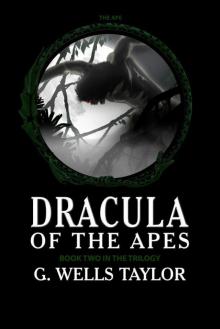 Dracula of the Apes 2
Dracula of the Apes 2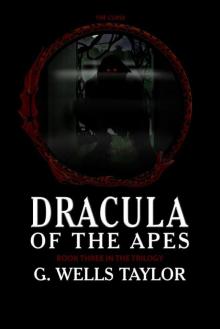 Dracula of the Apes 3
Dracula of the Apes 3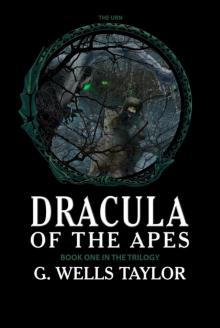 The Urn
The Urn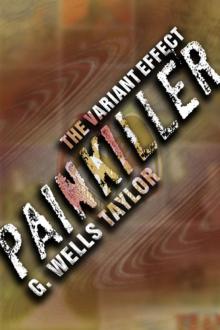 Painkiller
Painkiller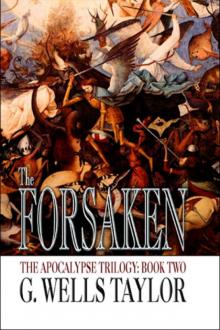 The Forsaken - The Apocalypse Trilogy: Book Two
The Forsaken - The Apocalypse Trilogy: Book Two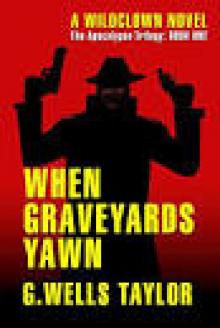 When Graveyards Yawn
When Graveyards Yawn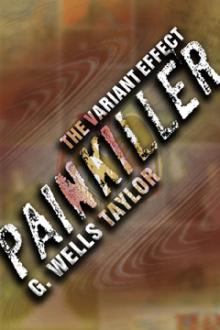 The Variant Effect: PAINKILLER
The Variant Effect: PAINKILLER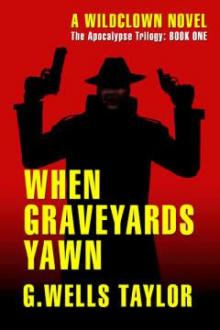 When Graveyards Yawn ta-1
When Graveyards Yawn ta-1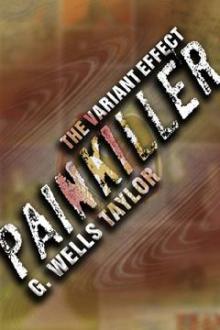 Painkiller tve-2
Painkiller tve-2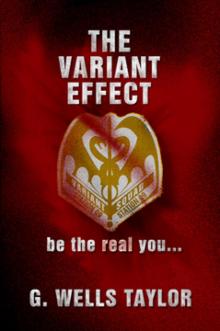 The Variant Effect
The Variant Effect